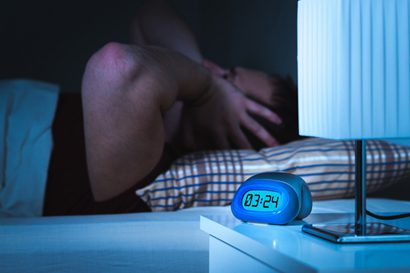News
Hangxiety: When Drinking to Overcome Nerves Increases Anxiety

Alcohol is commonly used as a means to lower inhibitions and overcome anxiety in social situations. But new research finds that drinking to ease social anxiety can actually backfire and lead to increased anxiety the following day, especially if you are prone to shyness.
A study published in the journal Personality and Individual Differences found that people with anxiety who drank alcohol to relieve it experienced increased anxiety during their hangover the next day, compared to a baseline group that remained sober. Scientists, who have dubbed the phenomenon “hangxiety,” found that very shy people experience it at levels higher than their extroverted counterparts.
Study co-author Celia Morgan, professor of psychopharmacology at the University of Exeter in the U.K., has suggestions for trying to break the cycle. “Before drinking in a social situation you feel anxious in, try fast-forwarding to the next day when you’ll have much higher anxiety levels. If you can’t ride that out without drinking, the worry is that you will get stuck in this cycle of problematic drinking where your hangxiety is building and building over time. Drinking might fix social anxiety in the short term, but in the long term it might have pretty detrimental consequences.”
For the super-shy looking to get through a social event without drinking to excess, Psychotherapist Tiffanie L. Davis Henry, Ph.D., offered some advice via ABC News, including choosing a drinking limit and sticking to it, and being gentle with oneself in uncomfortable situations.
The study also found a correlation between very shy people who experience high anxiety during a hangover and increased risk for alcohol use disorder (AUD). The authors state that this correlation could provide a potential marker for risk of developing AUD and could be used to help inform prevention and treatment.
The study authors say they hope their research encourages shy people to embrace their true nature, and stay away from drinking too much in anxiety-producing situations. “This might help transition people away from alcohol use,” said Morgan. “[Introversion] is a positive trait. It’s OK to be quiet.”